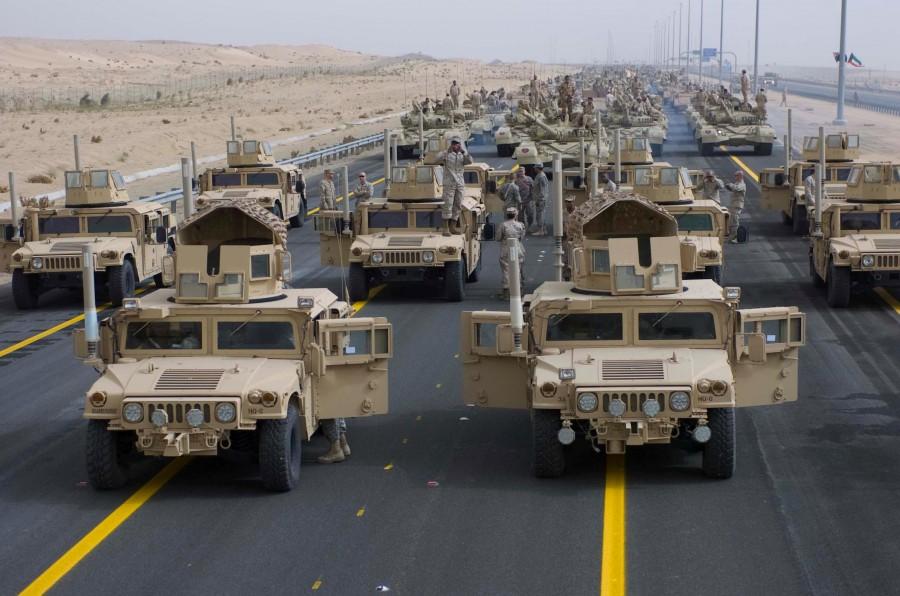Erasing “Don’t Ask Don’t Tell”
A formation of armored vehicles, manned by U.S. Army and Marine Corps personnel, stand ready to lead a convoy of coalition forces through the parade grounds established for the 50/20 celebration in Kuwait, Feb. 21. This celebration honors the veterans of Operation Desert Storm and recognizes the long standing and successful partnership that is indicative of our many friendships in the region.
Gone are the days where people were kicked out of the military for being gay. Over the last few years America has come a long way from that time. Just this last summer a law was passed that allowed same-sex couples to get married. Multiple states have laws against the discrimination of members of the LGBT within the workplace and other environments. There are gay men and women in government and other leadership positions. Schools are becoming more accepting when it comes to LGBT young people. We are far from perfect, but the amount of tolerance and acceptance that exists in the U.S. is by far the most it has ever been. Thanks to determined leaders and strong members and allies, we have made long strides for equality. But the battle isn’t over yet. We not only need to focus on the LGBT people of today that are treated unequally but also the people of yesterday. Those that were wronged before all of these laws were passed. We can help them, and one way to help them is to clear those who were kicked out of the military of their dishonorable discharges.
These men and women were removed from the military for their sexuality. That’s like being removed from the military for your eye color. It’s a part of you that you can’t change. These dishonorable discharges were unethical and impractical. The “don’t ask don’t tell” rule was just another way for the homophobic government leaders of the time to look like the good guys, (the rule barred the discrimination of closeted gay, lesbian, and bisexual individuals but also barred openly gay, lesbian, and bisexual people from joining or remaining a part of the military). This rule stopped perfectly healthy individuals from becoming vital parts of the nation’s armies. Which didn’t make any sense, wouldn’t you want as many healthy and able people defending the country as possible?
During the “don’t ask don’t tell” period, the navy specifically, would send in “decoys.” These “decoys” were usually straight men and women who pretended to be gay to weed out the homosexuals. They literally used military-like tactics to “weed out the gays.” Being a homosexual in the military was dangerous, sometimes life-threatening. Fellow military personnel were known to harass and bully closeted homosexuals which led to the correction of the law, “don’t ask, don’t tell, don’t pursue, don’t harass.”
13,650 men and women were dishonorably discharge from the military because of their sexuality between 1994, when “don’t ask don’t tell” was passed, and 2011, when it was repealed. 13,650 men and women were told that they were not fit to serve the country that they loved because of the gender of the person they loved. The government should clear these people’s records of their discharges, if only to apologize for the trials they went through during their service, and to fully show that America can change for the better. The members of the military that are part of the LGBT community deserve as much respect as those that are part of the military and heterosexual. Both serve our country, and you should be thankful that they are willing to give up their lives to protect another’s freedom.

